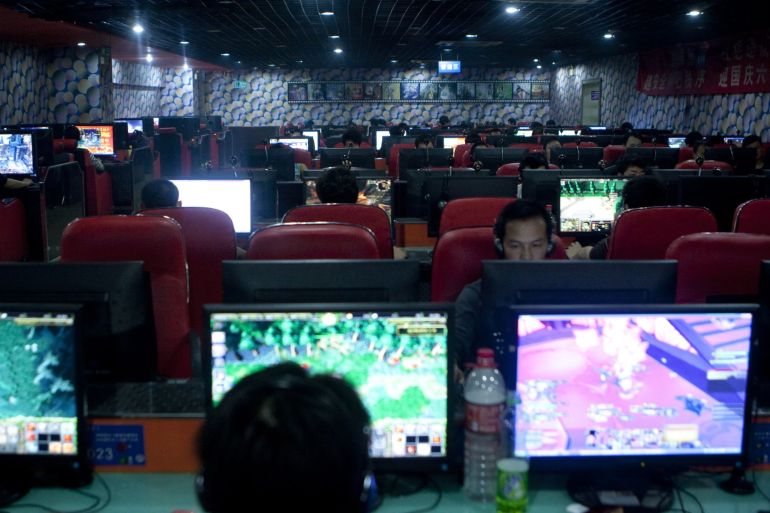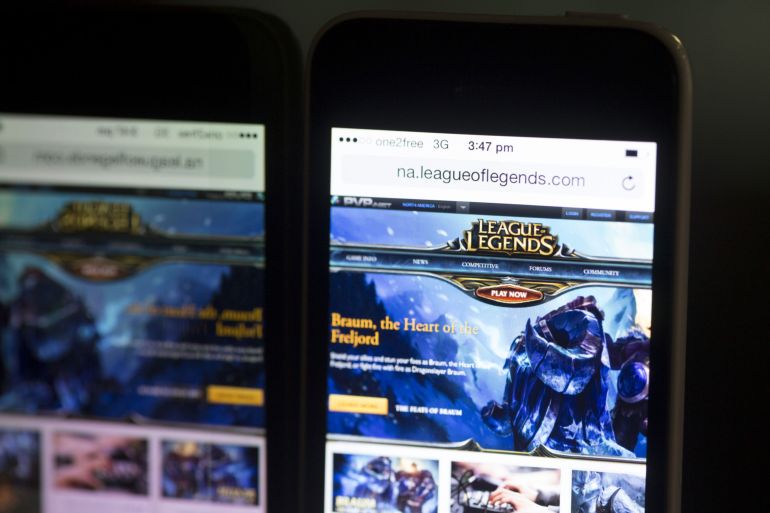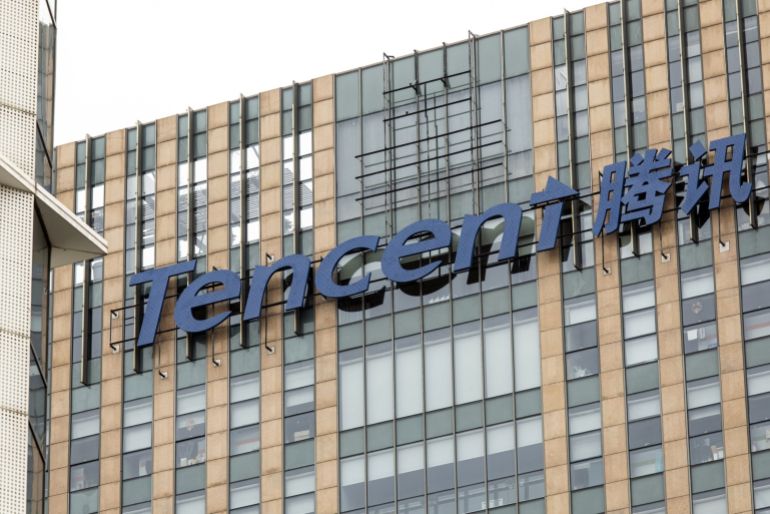China’s gamers hit pause button amid few releases, tough economy
Video game revenues decline for first time on record amid Beijing’s regulatory crackdown and strict pandemic curbs.

Beijing, China – Before China began cracking down on video games, Zhang “Yvan” Yifan had no shortage of new titles to play.
These days, Zhang and his friends struggle to find games that grab their interest, after authorities implemented a nine-month freeze on issuing licences amid concerns about rising addiction in the world’s most populous nation.
Keep reading
list of 4 itemsTaiwan official plays down impact of China’s trade restrictions
Many dead, missing as S Korea’s Seoul deluged by record rain
Boeing gets green light to start delivery of 787 Dreamliner
So far this year, the Chinese market has released just 105 new games, compared with 755 titles in 2021, and more than 9,300 in 2017.
“Most of my friends like playing competitive first-person shooter games,” Zhang, a university student in Beijing, told Al Jazeera. “But we cannot find a game we all want to play these days. Having fewer games to choose from is really sad to me.”
Zhang’s frustration is reflected in falling sales across the sector.
Video game revenues in the first half of 2022 fell for the first time since data became available in 2008, declining 1.8 percent to 147.8 billion yuan ($21.9bn), according to industry figures published by the China Audio-Video and Digital Publishing Association and the Gaming Industry Research Institute of China. Excluding overseas sales, revenue shrank a steeper 4.25 percent.
China’s slowing economy under “zero COVID” has compounded the sector’s woes, with many young people finding they have less money for non-essential purchases such as video games.
The world’s second-largest economy barely avoided contraction in the last quarter, growing just 0.4 percent, as authorities continued to roll out harsh lockdowns to control the spread of COVID-19.
In June, youth unemployment hit 19.3 percent, the highest level on record.

For Jon, a 29-year-old Shanghai resident who often plays mobile games such as Honor of Kings, the dicey economic conditions have meant cutting back on his hobby.
“I spend less on games now than I used to, even though I earn more now than in previous years,” Jon, who asked to be referred to by his English first name, told Al Jazeera.
“That’s because I’m worried I’ll have to save more during these uncertain times, because I might be put under lockdown or face unemployment.”
Free-to-download games have not escaped the downturn either. Popular mobile titles such as Fate/Grand Order and Azur Lane rely on in-game purchases by players trying to get a leg up on their peers to make money.
“The economy and the job market are really bad,” Wang Liang, a 22-year-old university student in Beijing who enjoys first-person shooters, told Al Jazeera.
“So most gamers like me will inevitably have less disposable income to spend on games.”
The sector’s current difficulties follow an even rockier 2021. Under a sweeping regulatory crackdown on the sector, Beijing introduced time limits for online gaming by minors and real-name verification rules to prevent anonymous in-game purchases.
Although the end of a nine-month freeze on new titles in April provided a glimmer of hope for the industry, the number of releases has been a trickle compared with previous years.
The two biggest domestic players, Tencent Holdings and NetEase, which together account for about 60 percent of the market, and foreign publishers have yet to have a single title approved for release.
“Although many dozens of titles have been approved, these resourceful players who understand the Chinese gaming market and tastes of the players very well have not been able to launch new titles,” Nir Kshetri, an economics professor at the University of North Carolina at Greensboro who has researched China’s gaming industry, told Al Jazeera.
Once thriving industry
The industry’s declining fortunes mark a sharp reversal for the once thriving industry.
In 2017, China became the world’s gaming capital on the back of popular smartphone titles such as Honor of Kings and Fantasy Westward Journey, taking almost one-quarter of the $101.1bn global market, according to research by venture capital firm Atomico.
Despite the regulatory and economic challenges, China’s gaming market raked in 296.5 billion yuan ($46.6bn) in sales revenue in 2021 overall, up 6.4 percent from the previous year, according to official government data.
China’s e-sports sector the same year was worth an estimated $403.1m, making it the largest market on earth, according to research by Niko Partners.
Some industry figures see this strong foundation as cause to be optimistic about the future.
The co-founder and COO of a Tencent-owned gaming studio, who spoke on condition of anonymity, said greater regulation had been needed and the easing of the licensing freeze was a cause for hope.
“There are still many ways to stimulate the market,” the co-founder told Al Jazeera, pointing to in-app purchases and advertising, greater efficiency in production, and emerging technologies like VR and the metaverse as potential solutions.
He played down the negative effect of the economy on the outlook for the industry.
“Less disposable income means that people will be more cautious about spending on games. But it does not necessarily mean that they will spend less on games,” he said.
“Gamers will be more and more demanding, so poor-quality games can’t earn money as easily as they used to. Only high-quality games can attract gamers to continue to pay. Therefore, game companies need to follow trends, focus on improving the quality of games, create more high-quality content and explore more monetisation possibilities.”

Others suggest the industry will need a significant period to recover.
More than 14,000 gaming-affiliated companies shut down during the first six months of the licensing freeze, according to a report in the South China Morning Post in January. Many other firms in adjacent sectors such as merchandising, advertising and publishing also suffered heavy losses during the period.
“Chinese developers are likely to face significant challenges to monetise their games until the ecosystem is rebuilt again,” Kshetri said.
In the meantime, frustrated gamers like Zhang can only wait in hope for a loosening up of the government’s grip on the sector.
He also hopes that the current turmoil will give the industry a necessary shake-up, ultimately leading to better quality games.
“The most important thing for multiplayer competitive games is the game environment, even more so than the game content, I think,” he said. “So if the game makers can give a better environment to the player, that will definitely make them happy again.”